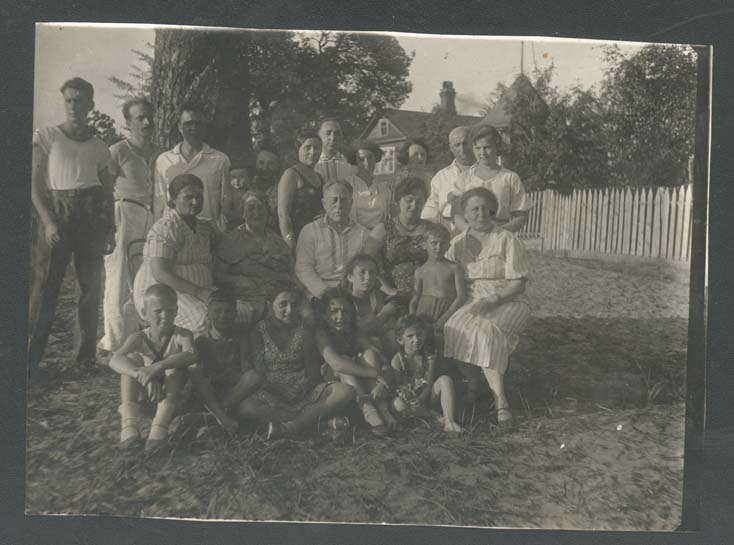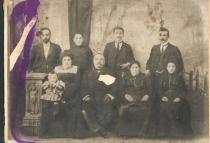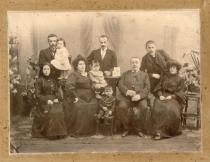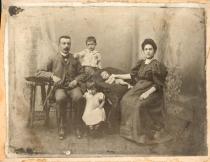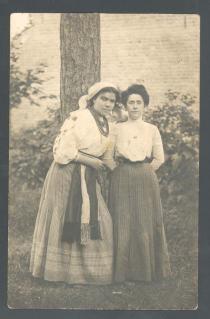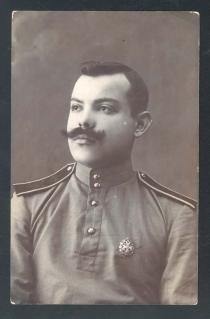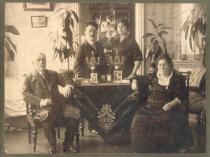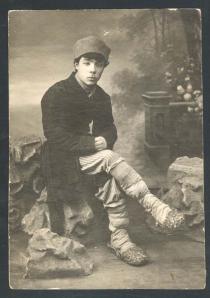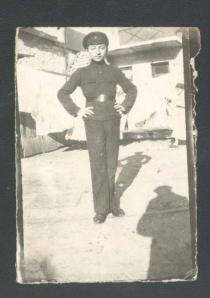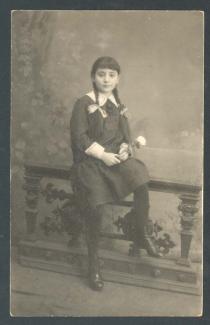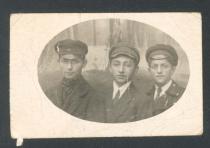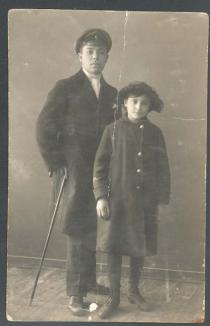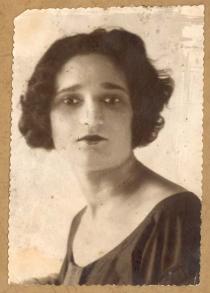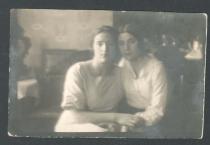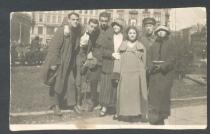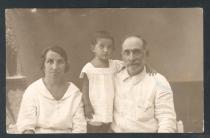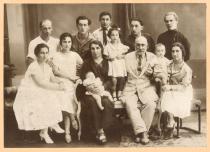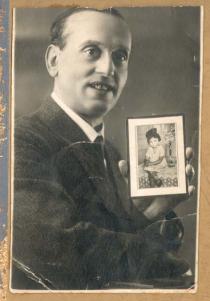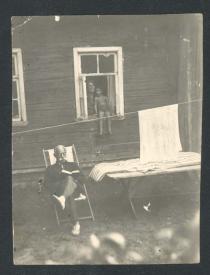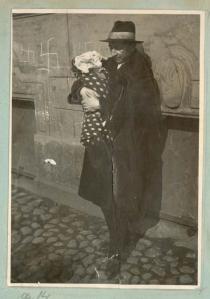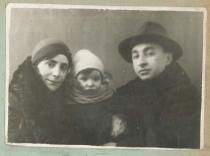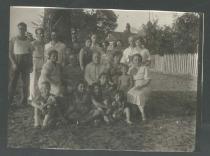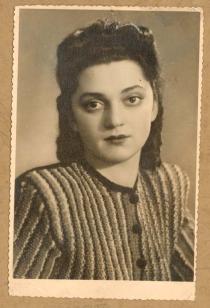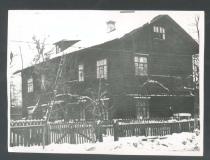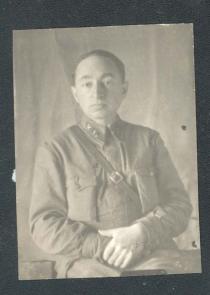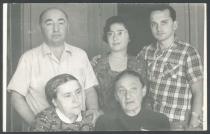It is taken before the war, in 1938, in Sestroretsk. On the snapshot in the center - grandmother and her brother David. Next to Granny and to the left of her sits the wife of David Moiseevich Eva Abramovna, on the other side sits her native sister, our neighbour then. In the second row stand their children: my mother with my father at the centre, from the left - two sons of Aunt Eva and uncle David - both died during the Great Patriotic War. And the last man in the row is Misha who was killed in the fights over Nevskaya Dubrovka, though for a long time he was considered lost, his death was not really confirmed. Aunt Eva waited for him until her death. His elder brother Sasha is next to him - he was wounded at the front and died in hospital of wounds. And in the very first row all of us children are sitting.
My grandfather on the mother's side - Leib Meerovich Golshmid [the correct spelling is Golshmid, according to the documents. Most probably, the original surname Goldshmidt was changed in the course of time], - was born in the Ukraine in 1872, in the town of Smele, or Shpole, because he is registered in Mum's birth certificate as "Shpole resident". His family was rather well-to-do. Grandmother Rachel Moiseevna Golshmid (nee Eiderman) was also born somewhere in the Ukraine in 1881. Then it was Kiev province, and now it is the Poltava region. The parents proposed them to each other, before that they hadn't met. As it was customary in Jewish communities back then, they were proposed to each other, but I am unaware about the details. But when they got acquainted, they fell in love with each other from the first sight and lived happily all their life. Grandmother died in 1944, in evacuation, grandfather - in 1947. I haven't been to Shpole, I only now about this Jewish settlement from my mother's birth certificate. I only know that her father was a Shpole resident - nothing else, unfortunately.
They arrived to live in St. Petersburg in 1904. But the first to come here was my grandmother's father. He was registered as a merchant of the second guild. I found it out in the directory " All Petrograd " for 1915. At first Grandfather worked in the Kalashnikov stock exchange, near the Lavra. He was an expert in flour. As a commercial traveler (or commission agent - that is what written in the directory) he bought and sold flour, traveling extensively. And my grandmother, naturally, was a housewife. Then grandfather served in St. Petersburg as an assistant of the manager of Bligken-Robinson confectionery factory, where the managerial position was held by the husband of grandmother's elder sister Vera. All of them together lived in Vozdvizhenskaya Street (nowadays Tyushin Street), not far from Obvodny Channel. They had rather a large apartment there. The family was well-provided for. During the elections before 1917, - as grandmother told me - they voted for the party of Constitutional Democrats (what kind of party it was?)… Before the revolution they used to go for vacations to Dubelnya near Riga (now the place is called Dublty), then - to the village of Martyshkino in the vicinity of St. Petersburg. They hired maids. Children, while they were small, were basically taken care of by the nurse, later - by a governess.
Grandfather and grandmother spoke basically Russian, but Yiddish they also knew well and sometimes spoke this language too. Grandmother Rachel was a fashionable woman and wore beautiful dresses and jewelry. Of course she would not put on a kerchief or a wig. They were not especially religious. And they did not go to the synagogue on Saturdays, even on big holidays. But some traditions they did observe. I remember that grandmother never gave us milk after meat. Kashrut was an inherent feature of Grandfather's and Grandmother's everyday life. But, in other respects they were not religious people - Grandmother didn't wear the wigs, nor did she attend to the synagogue or pray. Grandfather worked in the chocolate factory and I have no idea of his religious life.
